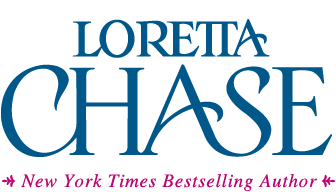From Loretta:

A reader asks:
“I know that once a story is submitted to the editor, it goes through a series of proof-reading and corrections, reworking storylines and editing. Why is it that after all that work some of these mistakes are still found in the story? Do the authors not keep vitals on their characters in order to keep his/her description accurate all through the book?”
It's alarmingly easy for authors to make mistakes. Including really horrendous, ridiculous ones. I speak from experience.

I research the daylights out of my subjects. I keep spreadsheets of character names, physical descriptions, dates of birth, dates of important events, and historical data. I keep a notebook of facts and details I need to check. A phrase in Chapter 2 might be too modern. I’ve changed a character’s hair or eye color or name or age part way through the story. I need to find out where a shop is. I make a note in the notebook and go back to the WIP.

I do this because stopping to correct these kinds of details while in the process of writing disrupts my concentration, mood, and the story’s flow. Because I revise so much while writing, it’s usually better to reserve the detail work for later in the process, when I’m cleaning up the manuscript before submitting it. But sometimes, in the frenzy and exhaustion of Deadline Hell, I miss one of my notes, and the mistake appears in print, to annoy readers like Jaclyne, who wonders how this can happen, when so many pairs of eyes review my work.

Mistakes with eye or hair color or other vital statistics are the kind someone really ought to catch, same as they ought to catch a writer's using, say, "flaunt" when the correct word is "flout," or a comma where there should be a period, or a missing end quote. If I’m such a babbling idiot by Deadline time as to miss an obvious mistake, a copy editor ought to catch it, and most will. But I’ve never had the same copy editor twice, and as is the case in all professions, some are sharper than others. (Along with covers, the subject of copy editors is one guaranteed to get a group of authors very excited. And not in a good way.)

When it comes to historical detail or foreign languages (for Yanks, the latter would include British English), it’s mainly the author’s responsibility. And this author, though a nerd, ALWAYS makes at least one mistake per book. It’s not that I don’t care. I drive myself & others crazy with the obsession to Get It Exactly Right. Yet inevitably, there are errors. Because Nobody’s Perfect. (For the best use ever of this phrase, please see Some Like It Hot.)


I could do a whole blog--or several--on the pitfalls of historical research, but foreign languages allow for an easy demonstration of the If You Don't Know It's Wrong, How Do You Know It's Wrong principle.
A few years ago I found out that there were a few errors in the Italian (pronouns and gender errors) in Lord of Scoundrels. This happened despite my consulting books as well as people who spoke and wrote Italian. Trouble was, I did not realize how difficult and complicated Italian was--trickier grammatically than French, for instance. I did not know that the book I relied on was inadequate. Neither I nor my consultants realized my queries to them should have been more detailed. What I needed was an experienced professional translator, but I didn’t know enough to know this.

I cannot expect editor and copy editor to catch Americanisms (i.e., words or phrases the English wouldn’t have used) or anachronistic language. So no, I can’t expect them to catch errors in every single foreign language that appears in my books--like Arabic as understood by English speakers in the 19th C (for Mr. Impossible).
Jaclyne says, “It sometimes annoys me to find these in the books I read, thinking that if I found them, they should have been easily corrected in the editing process. It makes me think I should become a proof-reader... seems to me the ones that are supposed to do the job are only skimming the story, not reading it, and so, not doing their job properly.”
That may be a little harsh. True, I and other authors have discovered errors introduced by others during the editing/copyediting/proofreading process--and not corrected, despite our protests. We’ve also discovered mistakes that every single person reviewing the manuscript somehow overlooked. But we definitely can't expect those reviewing to be omniscient. We’ve all made mistakes, I think, for which we can blame no one but ourselves, and all we can say to readers is, Mea Culpa.

(Originally posted at Word Wenches)
















